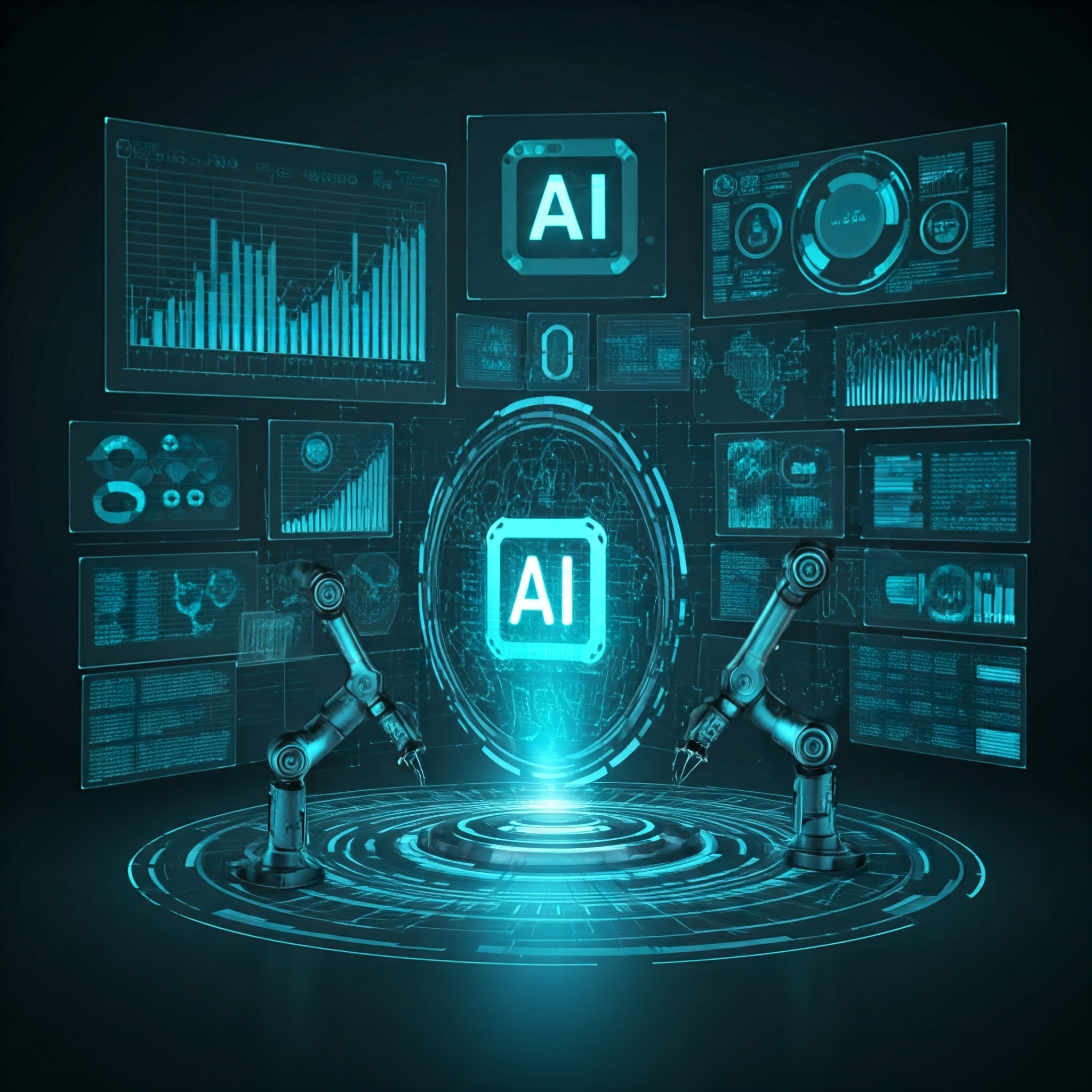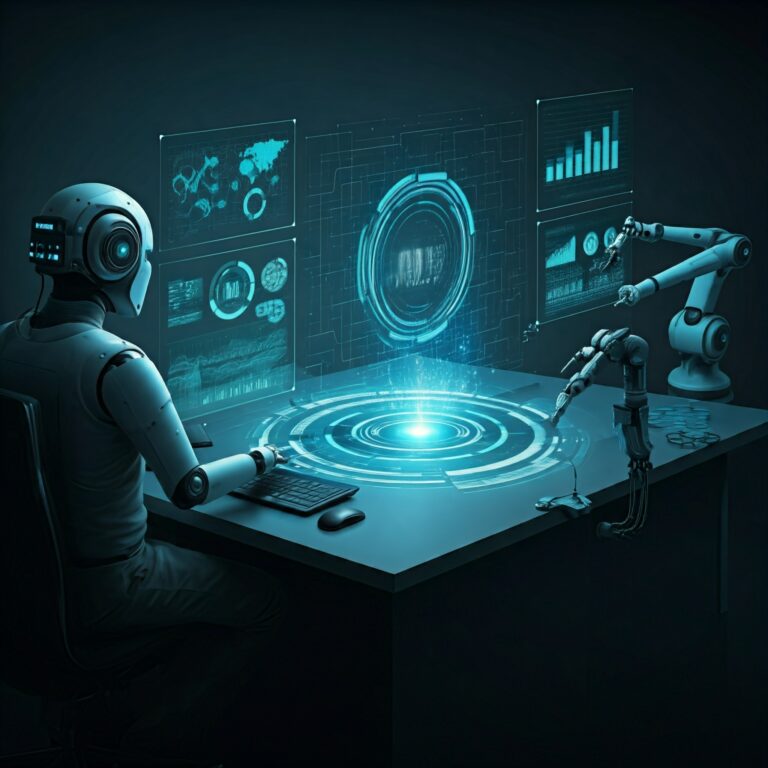The Role of AI in Automating Business Processes: Boosting Efficiency and Innovation
In today’s fast-paced business landscape, the need for speed, accuracy, and efficiency has never been greater. Companies across industries are constantly seeking ways to streamline their operations, reduce costs, and stay competitive. Enter artificial intelligence (AI), a game-changing technology that is revolutionizing business processes by automating tasks and optimizing workflows. From data entry to customer service, AI-powered automation is helping organizations operate more efficiently and innovate faster.
In this blog, we will explore how AI is transforming business processes and boosting efficiency, covering real-world applications and the benefits businesses can expect from embracing AI-driven automation.
What is AI-Powered Automation?
AI-powered automation refers to the use of artificial intelligence technologies to perform tasks that were traditionally handled by humans. By leveraging machine learning, natural language processing (NLP), and robotic process automation (RPA), AI can take on repetitive and time-consuming activities, allowing employees to focus on higher-value tasks.
AI automation can range from simple rule-based processes, such as auto-generating invoices, to more complex tasks like customer service chatbots that handle inquiries and problem-solving in real time.
Key Areas Where AI is Automating Business Processes
1. Robotic Process Automation (RPA)
Robotic Process Automation (RPA) uses software bots to mimic human actions and interact with digital systems to complete rule-based tasks. RPA is particularly useful for repetitive processes like data entry, invoice processing, and payroll management. By automating these tasks, businesses can significantly reduce the likelihood of human error while speeding up operations.
Real-World Example:
A financial institution uses RPA to automate its invoice processing workflow. Instead of manually entering data, AI bots extract information from invoices and input it directly into the company’s accounting system, saving both time and resources.
2. AI-Powered Chatbots and Virtual Assistants
Customer service is a critical aspect of any business, but responding to inquiries 24/7 can be resource-intensive. AI-powered chatbots and virtual assistants are increasingly being used to handle routine customer queries, troubleshoot issues, and even provide personalized recommendations.
These AI tools use natural language processing to understand customer questions and machine learning to improve responses over time. By automating customer support, businesses can provide faster, more efficient service while reducing the workload on human agents.
Real-World Example:
An e-commerce company uses an AI chatbot to assist customers with product inquiries and order tracking. The chatbot not only responds to questions but also suggests products based on the customer’s browsing history and preferences.
3. Supply Chain and Inventory Management
AI is playing an instrumental role in transforming supply chain management. From demand forecasting to inventory optimization, AI helps businesses make data-driven decisions that enhance operational efficiency. By analyzing historical data, AI algorithms can predict demand more accurately, ensuring that businesses maintain optimal inventory levels without overstocking.
Real-World Example:
A global retail chain uses AI to analyze purchasing patterns and forecast demand across its stores. This allows the company to optimize its inventory levels and reduce waste, leading to cost savings and more efficient operations.
4. AI in Human Resources (HR)
Human resources departments are increasingly turning to AI to streamline recruitment, onboarding, and performance evaluation processes. AI-powered HR tools can automate the initial stages of recruitment, such as screening resumes and scheduling interviews, helping companies find top talent more efficiently.
Real-World Example:
An HR department uses AI to screen job applicants by analyzing their resumes and matching them to the requirements of open positions. The AI system ranks candidates based on their qualifications, saving the team hours of manual screening.
5. Document Processing and Data Entry
Many businesses rely on the processing and management of vast amounts of data and documents. AI-powered document processing tools can extract data from scanned documents, classify them, and even generate reports. This is particularly useful in industries like finance, legal, and healthcare, where handling paperwork is often a major bottleneck.
Real-World Example:
A healthcare provider uses AI to process patient forms and input data into its electronic medical record (EMR) system. AI ensures faster, more accurate data entry, improving patient care and reducing administrative costs.
Benefits of AI-Powered Automation
The adoption of AI-driven automation is rapidly gaining momentum due to the significant advantages it offers businesses, including:
- Increased Efficiency
AI can perform tasks faster and more accurately than humans, eliminating time-consuming manual processes and reducing errors. Automation also allows businesses to operate around the clock, providing services even outside regular working hours. - Cost Reduction
By automating repetitive and labor-intensive tasks, companies can lower operational costs. Fewer manual processes mean fewer errors, which translates into cost savings from reduced rework and corrections. - Improved Scalability
As businesses grow, managing processes manually can become overwhelming. AI automation allows companies to scale their operations without the need for significant increases in staffing. For example, chatbots can handle thousands of customer inquiries simultaneously, whereas a human team would struggle to manage such volume. - Enhanced Innovation
By automating routine tasks, employees are freed up to focus on more creative and strategic activities. This encourages innovation and allows businesses to explore new ideas and opportunities that drive growth. - Better Decision-Making
AI systems can analyze large amounts of data in real time, providing businesses with actionable insights that help them make better decisions. From optimizing supply chains to personalizing customer experiences, AI gives businesses the tools they need to stay competitive.
Challenges in AI Automation
While AI automation offers many benefits, it’s not without its challenges. Some of the key issues businesses face include:
- Data Security and Privacy: Automated systems often handle sensitive information, so ensuring data security and privacy is crucial.
- Workforce Transition: As AI takes over routine tasks, businesses need to manage the transition for employees, providing opportunities for retraining and upskilling.
- Initial Investment: Implementing AI-driven solutions can require significant upfront costs, particularly for smaller businesses. However, the long-term ROI often justifies the investment.
Conclusion
AI-powered automation is transforming the way businesses operate, offering unprecedented opportunities for efficiency, innovation, and growth. Whether it’s streamlining supply chain management, automating customer service, or improving HR processes, AI is paving the way for a future where businesses can do more with less.
As AI technology continues to evolve, the scope of what can be automated will only expand. At APPNEURAL, we specialize in helping businesses implement AI solutions that meet their unique needs, ensuring they stay competitive in an increasingly automated world.



